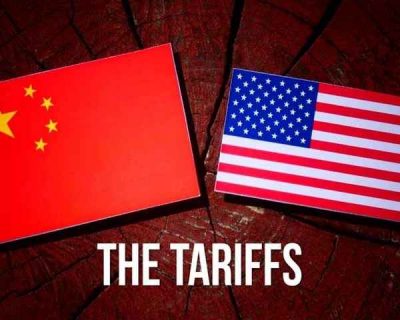Trump’s Threatened Tariffs Undermine China’s Trust in Negotiating with America

US President Trump tweeted that he will impose tariffs of 25% on $200 billion of Chinese goods by Friday and possibly even do the same to another $325 billion of them too if the ongoing trade talks between the US and China don’t conclude on America’s terms.
He also said that progress on this front is going too slowly for his liking and accused his counterparts of trying to renegotiate, something that he’s totally opposed to. These public messages are an unfriendly negotiating tactic intended to humiliate China by causing it to “lose face”, which is an important cultural concept in the East that most Westerners are unaware of or at the very least don’t properly understand. Trump’s threatened tariffs therefore undermine China’s trust in America as a reliable negotiating partner who can be spoken to in discretion without fear of the details of their sensitive talks being revealed to the global press by none other than the US President himself.
He’s of course not doing this in order to deliberately degrade his country’s international reputation and deal damage to American-Chinese relations but apparently believes that his tough stance towards China will win him more domestic political support ahead of the heated 2020 elections. Trump wants to differentiate himself from his Democratic rivals whose pragmatic stance towards China is considered by him to be inappropriate at best and treasonous at worst. After all, he won election in the first place partially because of his nationalist promise to “Make America Great Again”, and as is known, nationalism feeds off of an external enemy that can be blamed for the country’s problems. China, in this case, is portrayed as the US’ main rival, not only in Trump’s campaign rhetoric but also in his administration’s official policy as articulated by the National Security Strategy and other related documents that have been released under his tenure.
Words have consequences, however, and the American people can expect prices to increase if Trump’s tweets ultimately derail the ongoing trade talks, but he’s gambling that the nationalist revival taking place in the country will distract the masses from any adverse impact this could have on their country’s economy and therefore succeed in winning him re-election next November. This is a very risky strategy that’s fraught with many pitfalls and could easily backfire, but Trump has earned a reputation as a high-stakes gambler since entering into office and seems ready to apply this approach towards the ongoing trade talks with China. Regardless of their eventual outcome, the trust between the two parties will probably deteriorate after what the American leader just did in trying to publicly humiliate his counterparts on Twitter, which was a self-interested and undiplomatic move.
It’s understandable that Trump wants to advance his nation’s interests as he understands them, which is what every head of state is entrusted by their people to do, but he also has a responsibility to maintain stable relations with his international peers and to not disrespect them. He regularly remarks about his very close relations with President Xi, but his words are beginning to appear very insincere since he doesn’t have any restraint when it comes to insulting the negotiating team that represents the Chinese leader. Trump thinks that China needs the US more than the reverse and is basing this logic on the trade deficit between the two countries that he wants to rectify through the ongoing talks, but he should always keep in mind the concept of “face” and how China might be willing to accept the consequences that could come with the failure of the ongoing negotiations in order to protect its international reputation after Trump’s twitter attacks.
*
Note to readers: please click the share buttons below. Forward this article to your email lists. Crosspost on your blog site, internet forums. etc.
Andrew Korybko is an American Moscow-based political analyst specializing in the relationship between the US strategy in Afro-Eurasia, China’s One Belt One Road global vision of New Silk Road connectivity, and Hybrid Warfare. He is a frequent contributor to Global Research.

